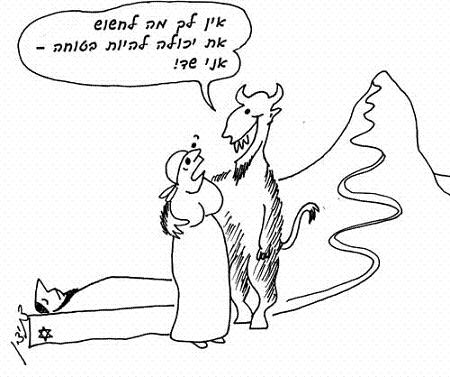
People who have heard an echo from the top of a mountain stating: So and so the son of so and so is dead, followed the sound and found no one there. The echo is accepted as reliable testimony and the person concerned is considered dead; his wife is not considered an agunah and is permitted to remarry. The scholars asked: Perhaps the echo was not the voice of a man, but that of a demon, for they customarily toy with people, and perhaps her husband yet lives? Answer: In this case they saw the form of the shouting man. The scholars continued to ask: Do demons not also have the forms of man? Answer: They saw his shadow. The scholars continued to ask: Do demons not also have shadows? Answer: they saw the form of a man with his shadow’s shadow (Rashi’s interpretation).
The scholars continued to ask: Perhaps demons have shadow’s shadows? And if they do, you must once again suspect that the report of so and so’s death is made by a demon. Answer: Demons have shadows, but not shadows of shadows. How did they know this? A demon named Jonathan revealed this to the sage Rabbi Chanina. The scholars continued to ask: Perhaps the cry came from this man’s second wife, called, in the language of the sages, tzaratah? If so, we must fear that she is tricking and lying out of a natural interest in having her husband to herself. Answer: Halacha is lenient about accepting testimony about a person’s death, and we do not fear it is the other wife, tzaratah, who is making the report, so we do not leave women as agunot. (Since in the Middle Ages the religious arbiters were not experts on the shadows of man and demon, the Shulchan Aruch ruled that [Even HaEzer 17:10] “If one hears a voice saying: so and so has died, and follows the voice but finds no one there, we allow the dead man’s wife to remarry. If this voice was heard in a field or in a ruin, we do not allow her to remarry based on the voice, for we fear it to have come from a demon, since the voice issued from a place in which demons are common.”)
(Babylonian Talmud, Tractate Yevamot 122a)
